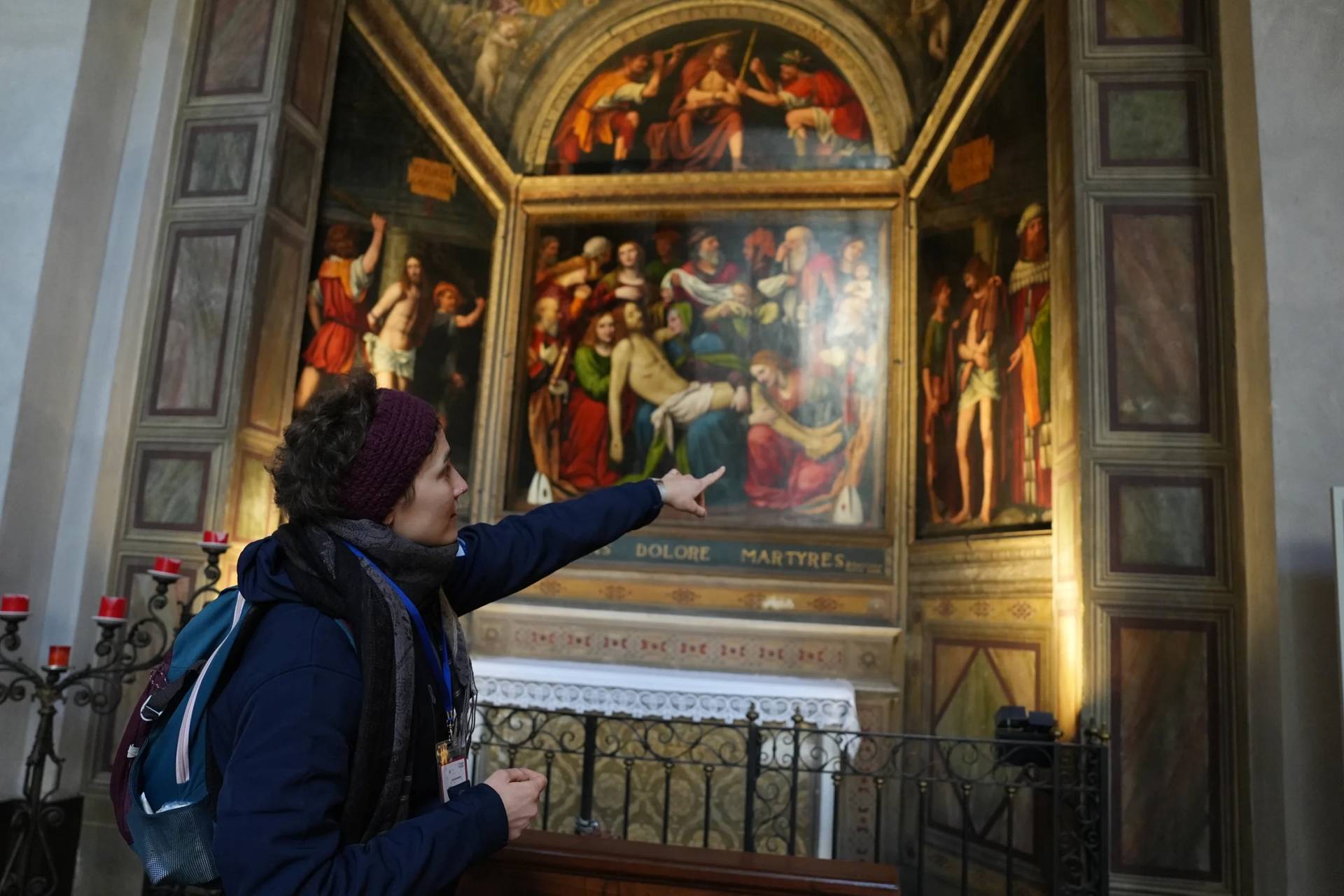ROME – Charlie Gard and Alfie Evans, two infants with degenerative diseases who died once life support was withdrawn, became global cause célèbres largely due to outspoken parents raising their voice for what they perceived as the best interest of their child, demanding that every possible avenue be explored to save their lives.
But a conference in Rome on Wednesday attempted to highlight the best medical and ethical practices in such cases, in order to allow infants to speak for themselves.
Pediatricians, medical researchers and health experts suggested that being able to evaluate the pain a child is feeling may provide an essential tool to delivering the best possible care.
“In the case of Charley and Alfie, the child was suspended between a desire to live – represented by their families – and a technical and scientific prospective that puts an emphasis on the uselessness of treatment,” said Paola Binetti, a neuropsychiatrist and Italian Senator.
“This focus on the sustainability of treatment,” she added, can obscure another and even more important theme: The suffering of the child.
The conference was titled, “When Pain becomes the Voice of the Child: Interpreting the Suffering of the Child to Protect its Life and Dignity,” and it took place at the Institute of Santa Maria in Aquiro in Rome Feb. 13. It was organized by the Italian association “Science&Life,” a group aimed at encouraging pro-life debates.
According to Italian neonatologist Carlo Bellieni, professor of neonatal therapy at the University of Siena, there’s a disconnect between the treatment of infants, especially when born premature, and the treatment of older children capable of expressing their will. His research attempts to remove infants from being caught between the desires of others.
“The ethical criteria used to revive an infant are much less evident than in the treatment of older children,” Bellieni said.
In a study he conducted examining the cases of dozens of infants and medical personnel, doctors in Italy are less likely to reanimate an infant born prematurely at 24 weeks than a child who had already spent time living and growing at home.
“The considerations for the reanimation of a premature child tend to be more statistical and based on the probability that he will survive and not have a serious disability,” he said.
It’s difficult, the doctor acknowledged, to determine what an infant is feeling because not only do children at that age cry all the time, but it’s also difficult to know why since they’re unable to voice their opinions.
“Let’s let the child speak,” Bellieni said, presenting studies and technologies that allow doctors to determine the pain a patient is feeling starting from stress levels and cries. Such findings become, he said, a compass pointing to better treatment.
“When pain tolerance levels escalate, it’s appropriate to desist from invasive treatments,” he said, and “if pain tolerance levels remain stable it opens the door to further care and treatment.”
Bioethicist Maria Teresa Iannone presented cases of parents who struggle to put the best interests of their children ahead of their own self-interest or cultural background.
Other experts said that sometimes it’s the state that overrides the life and wellbeing of the infant. Citing the British court that decided the Charlie Gard case, Alberto Villani, head physician at the papal-sponsored Pediatric Hospital Bambino Gesù, said questions regarding budgetary concerns were a determining factor in the decision.
“In the United Kingdom, the health system is collapsing,” he said, adding that financial considerations should not impact the treatment of a patient.
Bambino Gesù offered to treat both Gard and Evans. Pope Francis also has often spoken against euthanasia and insisted on the importance of protecting life from conception to natural death.
“We know well that the threshold for the fundamental respect of human life is today violated in brutal ways, not only by individual behaviors but also by the effect of structural choices and assets,” the pope wrote in a Jan. 15 letter to the Pontifical Academy for Life.
“The organization of profit and the rate of technological development offer unprecedented possibilities to influence biomedical research, educational focus, the selection of needs, the human quality of connections,” Francis wrote.
The moderator of the event, Alberto Gambino, a lawyer and president of Science&Life, expressed hope that by evaluating pain tolerance levels of children – including those still in the womb – they will not be subject to the “evanescent” decisions of judges or “efficiency-based approaches.”
“Pain treatment is not only an ethical duty,” Iannone concluded, “but also an example of good clinical practice that keeps up with the times.”













